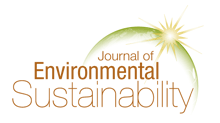Creative Commons License

This work is licensed under a Creative Commons Attribution 4.0 International License.
Abstract
Social responsibility is one of the most important requirements in business life. Values and mission statements, community contributions, ethics codes and sustainability reports are staples of the web pages of every self-respecting company. The concept has inspired a burgeoning academic discourse featuring some of the most noted social scientists. And yet, despite some important solutions and achievements, a rapidly changing and globalizing world continues to pose new challenges. The purpose of this article is to identify both achievements and challenges in the specific intersections of western corporate culture and post-socialist Eastern Europe. We first review the western, international academic discourse on corporate social responsibility. Second, we engage the theoretical conclusions of CSR research in Hungary. Third, we further narrow our focus on the empirical findings of a case study on international business culture and CSR in the medium-sized town of Dunaújváros, a former “model town” of the Hungarian socialist era. This top-down approach has two major achievements: on the one hand, it allows us to synthesize and identify the dynamic interconnections, achievements and impasses of global CSR in local social environments. On the other hand, it sheds new light on the discrepancies between western and Eastern European CSR theories and practices. Finally, we make recommendations about how to assess corporate social policy and identify good practices in specific post-socialist environments like Hungary.
Recommended Citation
András, István and Rajcsányi-Molnár, Mónika
(2015)
"The Evolution of CSR and its Reception in Post-Socialist Environments: The Case of Hungary,"
Journal of Environmental Sustainability: Vol. 4:
Iss.
4, Article 1.
Available at:
https://repository.rit.edu/jes/vol4/iss4/1
